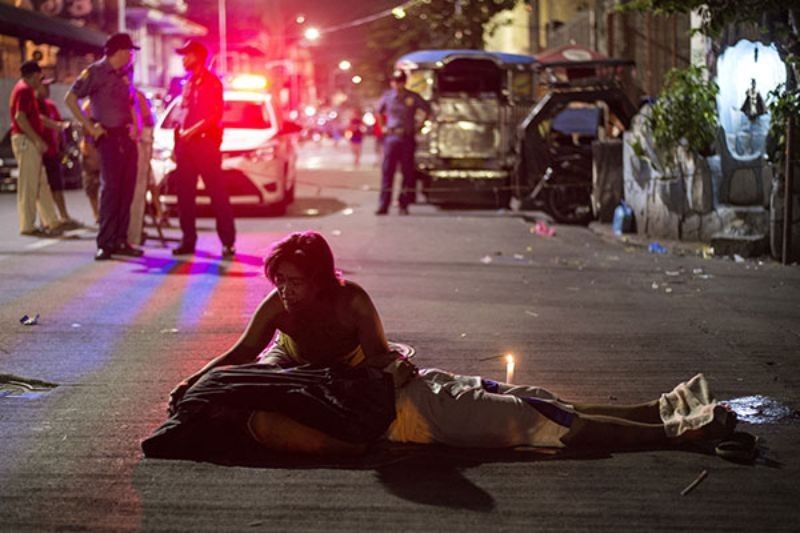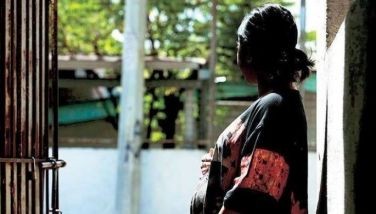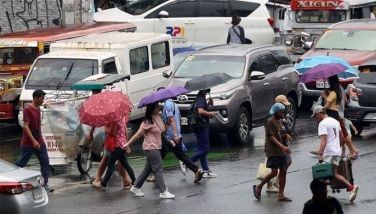‘Kian Bill’ filed in Congress, seeks humane approach to drug war

MANILA, Philippines — A House lawmaker filed the Public Health Approach to Drug Use Act of 2024 on Monday, November 4, seeking to establish a humane and evidence-based approach to addressing illegal drug use in the country.
House Bill 11004, dubbed as the “Kian Bill,” proposes a ban on arbitrary and unlawful interference with privacy, torture, corporal punishment, and misrepresentation of information to prevent human rights violations, such as extrajudicial killings, that occurred during the Duterte administration’s war on drugs.
Filed by Akbayan Partylist, the bill was named after Kian delos Santos, a 17-year-old boy who was shot by police during a drug raid in 2017.
How is it different? In contrast to the “kill orders” or statements made by former President Rodrigo Duterte against drug suspects, the bill prioritizes a community-based health and social support program for people affected by drug use.
RELATED: Duterte admits giving kill orders, confirms death squad existence
Interventions include an educational campaign focused on informing individuals whose lives involve drug use of their human rights, medical and social services, psychosocial support and relapse management.
“The Kian Bill prevents the killing of more innocent Kians. Instead of violence and bullets, our solution is to provide appropriate treatment and direct support to drug users,” Rep. Perci Cendaña (Akbayan Partylist) said in a mix of English and Filipino.
The bill aims to overhaul Republic Act 9165, known as the Comprehensive Dangerous Drugs Act of 2002, which currently serves as the legal framework for addressing illegal drug use in the country.
The prefatory statement explained that the existing law has been supported by administrative issues that mandated random urine testing, compulsory treatment, drug lists, police visits, warrantless arrests, drug clearing operations and coercive measures violating human rights.
The police’s role. Under Section 7, law enforcers are prohibited from apprehending, arresting, detaining, listing, profiling or subjecting individuals suspected of possessing illegal drugs to surveillance.
They are instead tasked to assist these individuals in a community-based health and social support program.
This stands in stark contrast to the drug war, which was marked by a fear-mongering “narco list” publicly broadcasted by the president and an estimated 12,000 to 30,000 EJKs, as recorded by human rights groups.
Other changes. The bill also seeks to convert compulsory drug rehabilitation centers and treatment facilities into voluntary programs under the supervision of the Department of Health, with police officers prohibited from operating these rehabilitation centers for individuals with drug-related offenses.
It also outlines how the rights of vulnerable and marginalized groups affected by drug use should be protected, guaranteeing access to healthcare and equitable treatment for children, women, persons deprived of liberty and indigenous peoples.
To ensure accountability in implementation, the bill proposes the establishment of a Congressional Oversight Committee, consisting of five senators and five House lawmakers, similar to the current law.
Meanwhile, the Department of Health will be responsible for creating the bill’s implementing rules and regulations should it be passed.
The bill based its interventions on the recommendations provided by the United Nations Joint Programme for Human Rights in the Philippines, which utilized international guidelines in support of the Enhanced Philippine Anti-Illegal Drugs Strategy.
Congress has been investigating the implementation of Duterte’s drug war, focusing on EJKs and the alleged cash reward system for police officers who kill drug suspects.
While the Senate has interrogated Duterte, the lower chamber has yet to hear the former president address allegations made against him by police officers involved in the war on drugs.
- Latest
- Trending































